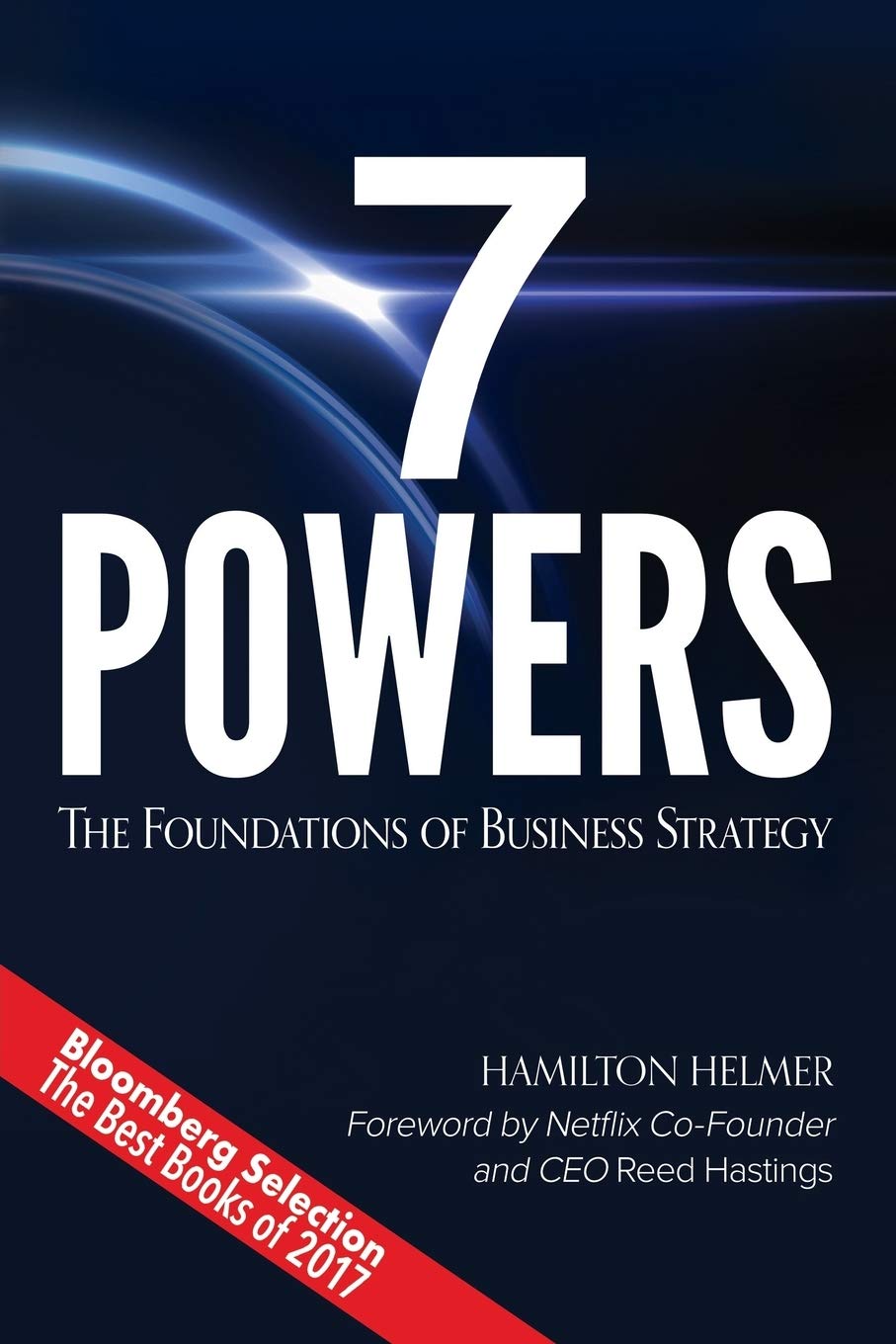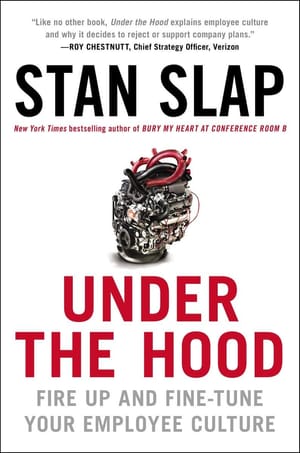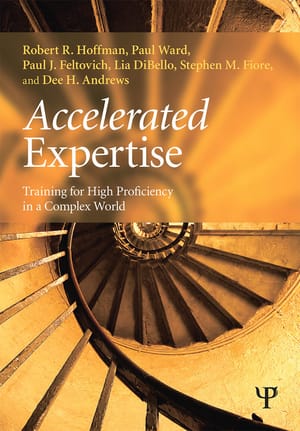
7 Powers is arguably the best book on business strategy currently available today.
This is a summary of a 🌳 tree book, arguably the best book on business strategy currently available. 7 Powers is very good, remarkably well written, but deceptively easy to read; the framework that the book develops is ‘simple without being simplistic’. To my mind, 7 Powers supplants Michael Porter, shores up several holes in Clayton Christensen’s disruption theory, outshines Bruce Greenwald’s Competition Demystified, and makes Richard Rumelt look like a child playing with strategy toys. If you must read only one book on business strategy, make it this one.
This book summary is part of a members-only series on competitive arbitrage.
The central problem that business strategy is supposed to solve is easy to state: how do you prevent your business from sucking?
Most businesses in most industries eventually suck. We’ve already covered the fundamental reason why: the short — if simplistic! — answer is ‘because competitive arbitrage’ — good businesses have high profit margins; high profit margins attract competitors and copycats who are willing to reduce prices; over time, the increased pressure from competitors drives prices and margins down to the opportunity cost of capital.
The question business strategy is supposed to answer is ‘how do you prevent that from happening?’ In the absence of strategy, the simple — if naive — answer is to run harder and innovate better and work longer hours than your competition. But then it’s only a matter of time before you (or one of your successors) trip up. A better answer is to find a ‘moat’; some … thing that helps you run less hard and work less hours, while still maintaining your profit margins.
Helmer’s book proposes there are really only seven types of moats. He calls these moats ‘powers’, because it literally gives you Power against margin compression. The book is structured in the following manner:
- Helmer spends one chapter doing definitions and setup.
- He spends the next seven chapters explaining each type of Power.
- He then describes how to find Power for your business. The most important point he makes here is that you cannot discover Power through analysis alone; you have to discover Power through trial and error.
That last bit is why I think 7 Powers is the best book on strategy available today — simply put, Helmer’s theory is pragmatic. He recognises that business operators rarely discover Power through thoughtful analysis; they nearly always discover it through action. And so the contribution of 7 Powers is that it helps you recognise sources of power when you see them; Helmer has said that the usefulness of 7 Powers lies in the fact that it turns strategy into a ‘multiple choice question, not an essay question’. His hope is that you would use his theory to make your trial and error cycles more deliberate.
This approach to strategy is something that I can get behind.
Why Power is Something You Can Feel
Like Helmer, I’ll need to do some setup before we get into the Powers properly.
Helmer defines the following terms in the following manner:
- Strategy (big ‘S’) is the study of the fundamental determinants of potential business value.
- Power is the set of conditions creating the potential for persistent differential returns.
- strategy (small ‘s’) is a route to continuing Power in significant markets.
Those of you who are familiar with the field of business strategy should notice that there is a very particular setup going on here. Helmer is extremely rigorous in his thinking, and he wants to be precise when he lays out the definitions above. For instance, what does it mean when he says ‘potential business value’? Obviously a business that resists competitive arbitrage is better than a business that doesn’t, but how do you evaluate that? What proxy might you use?
Helmer picks the most commonly accepted definition: business value is fundamental shareholder value. This works well enough for our purposes, since a business is worth whatever you are able to sell it for, and shareholder value is a well-studied expression of that idea. In the broader business literature, shareholder value is usually measured using the proxy of the net present value (NPV) of expected future free cash flows. This wonky definition actually serves a practical purpose — Helmer establishes we may also talk about the NPV of free cash flows in terms of the following equivalent formula:
NPV = $M_0g\bar{s}\bar{m}$
where:
- $M_0$ is the current market size
- $g$ is the discounted market growth factor
- $\bar{s}$ is the long term market share of your business, and
- $\bar{m}$ is the long term differential margin (to be more precise, this is the net profit margin in excess of that needed to cover the cost of capital)
Helmer calls this the ‘Fundamental Equation of Strategy’. This is a fancy name for an equation that is saying something rather simple.
What Helmer is trying to say is that Power is whatever allows you to maintain or grow your market share ($\bar{s}$), and maintain differential profit margins ($\bar{m}$) in the face of competition, in a growing market ($M_0g$) that is either already large, or will become large. This is useful because it puts some guardrails around our discussion. In the past, strategy authors have been all over the place about the goals of strategy. To take one example, in his book Competition Demystified Bruce Greenwald argues that strategy is exclusively about defending against new entrants, and his book places ‘protecting market share’ with ‘high barriers to entry’ as the ultimate goal of business strategy. Helmer asserts that Greenwald’s argument — along with the arguments of every other strategy author that have come before him — are insufficient. Real world businesses are able to create value even if they lose market share to the competition (think iPhone vs Android phones). In fact, valuable business have been built in all of the following scenarios:
- In a rapidly growing market, the business manages to maintain its market share over a small subsection of the market, but retains extremely good differential margins (think: iPhones vs other smartphones).
- In a mature, slowly growing market, the business is able to take market share away from its competitors, while maintaining its deliberately small but still defensible profit margins (think: Amazon vs traditional retailers).
- In a mature, slowly growing market, the business manages to maintain its market share but increases its differential profit margins (think: SAP selling other products into its captive install base).
- In a rapidly growing market, the business manages to rapidly grow its market share of the rapidly growing market, after which it enjoys monopolistic profit margins (think: Google).
- In certain markets, a new business may be able to influence the growth of that market directly by creating compelling value (think: Facebook), while capturing most of that value in the form of differential margins for itself.
Helmer is essentially arguing: look, there are all sorts of ways to win in business, you can grow market share or maintain market share in a growing or mature market; you should pick a path that allows you to keep differential margins compared to the rest of the players in your market as you do so; which path you pick really depends on the type of market you’re in, and if you accept this fact and agree with me that the goal is to increase NPV over the long term, then you must resist competitive arbitrage, and I’m going to show you that there are really only seven ways to do so.
(Or, more concisely, NPV = $M_0g\bar{s}\bar{m}$; heh.)
Helmer also sidesteps a bunch of thorny issues related to the study of strategy. For instance, management consulting types like to sell ‘strategy’ as the set of smart moves that you can do to clinch victory from the jaws of defeat — no matter the business or its industry or the starting position the business finds itself in. This is a different question than what Helmer is interested in. Helmer believes that reducing the study of business strategy to ‘how do I get to a point where I can resist margin compression?’ is a more useful framing to use; not every business can be saved if it is already in the grip of secular decline. Helmer also wants to distance himself from the study of strategy in game theory, because the goal of business strategy is really to deliver durable, differentiated returns, not to fall into some theoretical optimal equilibrium between adversaries.
Helmer introduces a few more caveats, and two of them have interesting implications:
- For the sake of brevity, 7 Powers is concerned with strategy at the level of the single business unit, not necessarily the overall corporation. So, think: Google Ads as a business unit, not Google as a whole; the Apple Watch as a business unit, not Apple as a whole. Naturally, this implies that there’s also strategy when you’re operating at the level of a corporation — a corporation can, for instance, use the cash flow generated from one business unit to subsidise the costs of another. Helmer deliberately excludes this set of tactics for the sake of simplicity, saying that he hopes to write a follow-up book to tackle this question. Naturally, this means that when Helmer says ‘fundamental shareholder value’, he specifically means the ongoing enterprise value that shareholders attribute to a particular business unit in the overall company.
- Helmer also takes pains to highlight that Power is relative, not absolute. Helmer argues that good strategy (note: small ‘s’) is about assessing and building Power with respect to each competitor — and there may be many competitors for a given business. For instance, with Netflix, some of its competitors may be direct (think Netflix vs Disney+) or functional (think: Netflix vs Starz, the content owner from which it licenses a large collection of shows). To quote Helmer: “Any such players could be the source of the arbitrage you are trying to circumvent, and any one arbitrageur is enough to drive down differential margins.”
I think what is most interesting about 7 Powers is just how universal the concepts are. You’ll find these ideas almost everywhere in the business literature, once you know how to look. My favourite version of the ‘businessperson discovers the notion of Power’ story is probably Charlie Munger’s — who realises, sometime in the 70s, that some businesses are good and you may take money out of them, and some of them are bad, and require that you keep ploughing profits back to keep them afloat. He says, in Poor Charlie’s Almanack:
There are two kinds of businesses: The first earns twelve percent, and you can take the profits out at the end of the year. The second earns twelve percent, but all the excess cash must be reinvested — there’s never any cash. It reminds me of the guy who sells construction equipment— he looks at his used machines, taken in as customers bought new ones, and says, ‘There’s all of my profit, rusting in my yard.’ We hate that kind of business.
This is completely intuitive. After all, what is the point of owning a business? You want to own a business because you want an asset that generates cash for you — cash that you can take out and use for other things. Your business is considerably suckier if you have to continually reinvest cash into it.
Of course, in Helmer’s parlance, the construction equipment business has no Power — over time, it will not be able to defend its profit margins, and it has no way to expand or even maintain its market share. The net result: the business throws off no excess cash, so the net present value of expected future free cash flows will likely be low; the business is probably worth no more than the book value of the assets it currently owns.
Indeed, if you talk to anyone who has spent enough time in business, you’ll realise that they all eventually gain an intuitive grasp of ‘Power’. Even uneducated, traditional Chinese businessmen types are able to say “eh, that feels like a bad business” — and after awhile you’d realise that all they’re doing is a Valuation+Power calculation in their heads, even if they can’t articulate it as cogently as Helmer does.
Why is that the case? I think the answer is simple: bad businesses — the ones lack Power — feel different from good ones. Because competitive arbitrage slowly pushes margins downwards, operators of bad businesses will often feel like they have to run faster and faster each year in order to stay in the same place.
I don’t want to understate this point — an entrepreneur might grok what I am saying because they have a window into the business’s finances, but an employee wouldn’t normally have visibility into any of that, and would not know that Power affects them as well. To most people working in a bad company, you would simply feel that the company gets less and less nice to work at. You’d watch perks vanish, find that KPIs become ever more onerous year on year, and you’d think that maybe this is normal and reflects the natural state of the world, right up to the point where management gets so tightfisted it refuses to buy a new coffee machine to replace the one that Bob broke, and the old one sits mouldy and unused in the corner of the office kitchenette and serves as an ugly reminder of the state of the business.
Businesses that lack Power also feel horrible because they become ripe for abuse. Here’s a story to illustrate this: a friend of mine was a founding employee of a last-mile logistics company. Over time, fulfilment of Alibaba orders grew to represent 90% of the company’s overall earnings, and the giant began to ask for more and more unreasonable things. The Alibaba ops department would subject my friend’s team to ridiculous invoicing practices, unreasonable KPIs, and increasingly long payment terms. The philosophy was “squeeze all our suppliers right above the point where they break”; my friend eventually burnt out. He left shortly after. His company didn’t have leverage — it couldn’t renegotiate contracts with Alibaba, it couldn’t push back because Alibaba represented 90% of their revenue, and it couldn’t invest any money to get out from under Alibaba’s thumb, because cash flow was bad and margins were so thin anyway — where would they have gotten the cash to do anything else? In a sentence, they didn’t have Power, and my friend suffered for this.
Experienced businessmen — even uneducated ones — understand this, and deeply. And the interesting thing is that if you read biographies of self-made businessmen, you would see the same pattern again and again: over time, successful businesspeople learn that certain businesses can have Power, while others do not; they learn this because their first few businesses were terrible to run.
Originally published , last updated .
This article is part of the Market topic cluster, which belongs to the Business Expertise Triad. Read more from this topic here→




